IPC: There’s urgent need to rebuild people’s trust in Nigeria’s democracy, electoral process
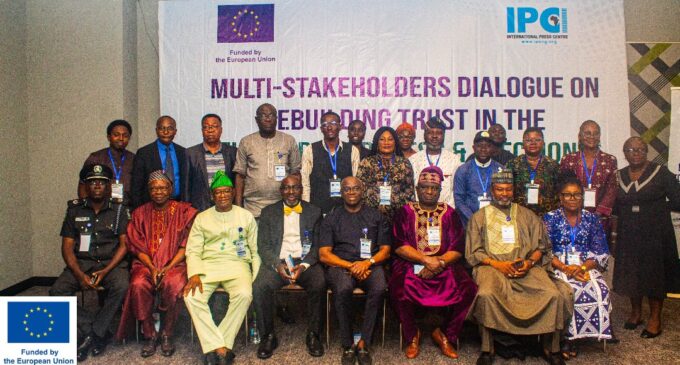
The International Press Centre (IPC) says there is an urgent need to rebuild people’s trust in Nigeria’s democracy and electoral process.
Lanre Arogundade, IPC executive director, spoke on Monday at a multi-stakeholders dialogue on rebuilding trust in the electoral processes, institutions and elections, which was held at Radisson Blu Hotel, Ikeja, Lagos.
Arogundade said the forum is to get insights and perspectives that will help shape a better future for Nigeria’s electoral processes and elections.
“Perception-wise, misconception-wise, or reality-wise, it cannot be denied that some contentious issues arising from the 2023 elections have created mistrust among Nigerians.” Arogundade said.
“As in journalism, bad news spreads faster than good news. Some of those challenges have elicited local and international observations including the one led by the European Union, Election Observation Mission (EU-EOM), which highlighted elements of waning public confidence and trust in the electoral process.
“Furthermore, IPC’s media monitoring activity of 20 print/online media and INEC social media platforms over the past 18 months also reveals elements of negative perception by some citizens about the electoral processes and outcomes; though it has been argued that some of the negatives appeared to have been exaggerated.”
He said without rebuilding trust, it might be difficult to get the electoral process right in the next round of off-cycle governorship elections and in the larger 2027 general elections.
“Thus, among the questions that should agitate us as media and civil society organisations, as we engage in this deliberation today are: have we done enough to hold important stakeholders like the government, the political parties, the candidates, the security and law enforcement agencies, etc, accountable for their actions at elections in addition to INEC?” he asked.
“If we agree that we haven’t, then what can we do better?”
Arogundade added that the task of building trust in the electoral process is a collective responsibility.
On his part, Isaac Albert, the lead presenter, said disappointment with the outcome of the 2023 elections, hunger, insecurity, and workers’ restiveness, among other issues would negatively affect the participation of the electorate in future elections if trust is not rebuilt.
Albert, a professor of African history, peace, and conflict studies at the institute for peace and strategic studies, University of Ibadan, noted that there is no alternative to democracy and that without trust, democracy is a facade.
To rebuild trust in electoral processes, he urged the government, electoral agency, and other stakeholders to acknowledge the breach of trust, apologise sincerely, communicate openly, and follow through on commitments.
He urged Nigerians to also be the change they want to see.
‘DEEPENING DEMOCRACY INVOLVES COOPERATION OF EVERYBODY’
Also speaking at the event, Yusuf Dantelle, national chairman of the Inter-Party Council (IPAC), said ensuring the conduct of genuine and credible elections that would meet international best practices is possible.
He noted that IPAC encourages inclusivity, saying “the moment you exclude any arm of the society, you have injured democracy”.
“Here, in Nigeria, we have the political office transforming the status of political office holder, so what it means is that politics in Nigeria is business. It is not a service to the people,” he said.
“Where you have that, it will be difficult to trust.”
He added that deepening trust in democracy involves the cooperation of every Nigerian, and speaking truth to power.
“We must build the spirit of economic and political nationalism that this country is ours and we must get it back,” Dantelle said.
Mustaphar Tukur, Lagos director of the National Orientation Agency (NOA), said Nigeria’s problems are caused by the political elites and citizens.
Citing an example of vote buying during elections, Tukur said it was high time the political elite did the right thing by allowing the electorate to vote for their preferred candidates without inducement.
Oluwatomi Amosun, representative of the National Youth Council of Nigeria (NYCN), said the youth must harness their power to advocate accountability, transparency, and fairness in every electoral aspect.
“Our generation represents the future of Nigeria and it is our duty to actively participate in shaping the future through constructive engagement, civic responsibility, and informed decision-making,” he said.
On the issue of women in politics, Abigail Ogwezzy-Ndisika, director of the institute of continuing education (ICE), University of Lagos, said women’s voices are missing in politics and this has become a trend over the years.
“If people are not involved in election or if there is no such inclusivity, there are issues,” she said.
She suggested mainstreaming affirmative action into party constitutions to encourage inclusivity.






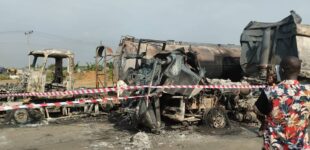
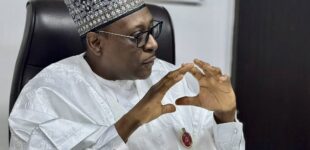
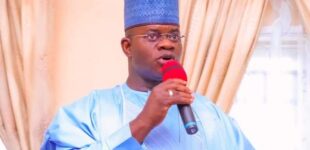

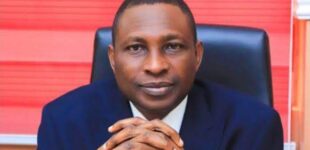

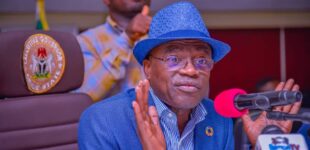


There are no comments at the moment, do you want to add one?
Write a comment